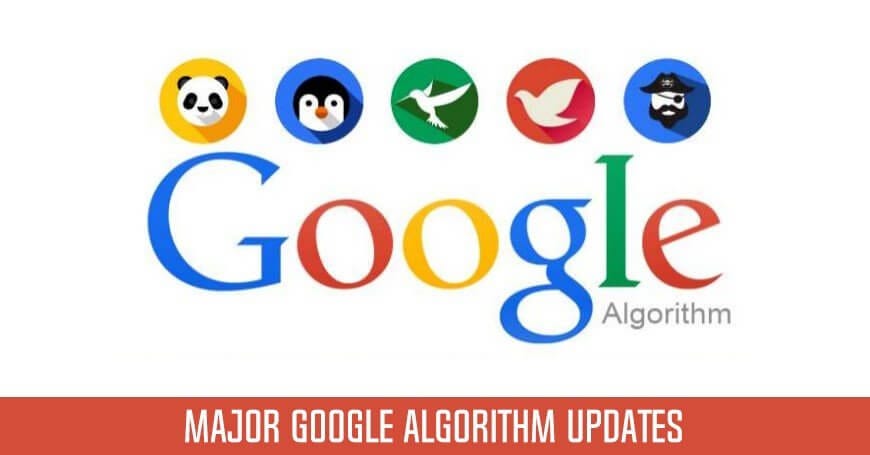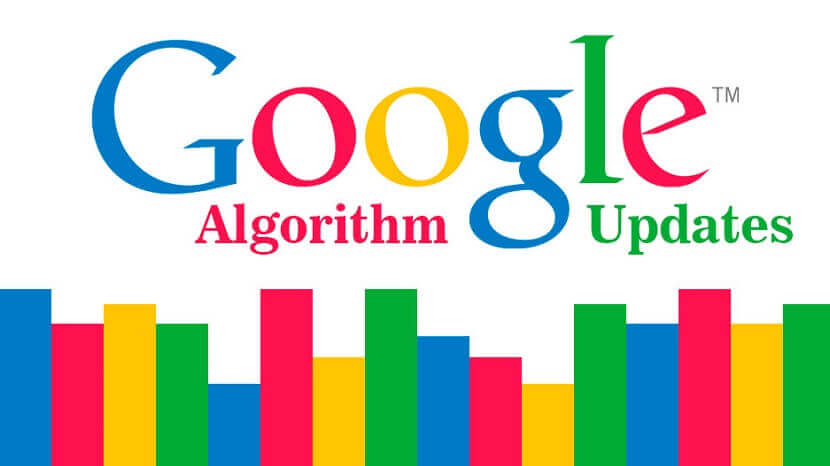How does a Google Algorithm update affect your website?
In this endless world of the Internet, Google reigns as the first choice of billions who want to search for services, products, or information.
As it receives billions of searches every day, the search engine tries to refine its algorithms in order to provide reliable and high-quality content to the world.
Google updates its search results thousands of times a year to remove bugs and keep the whole user interface flawless. Most of these updates are small and negligible for the masses, but these algorithm updates may have big implications for your website and its revenue.
When you understand Google’s updates and how they work, then it helps you to design better content and recover from ranking changes that happen with algorithm updates. Every time they make an update, the content that people find on the internet changes.
However, for website owners, these regular updates can be troublesome. It is essential to understand the impact Google algorithm updates can have on your website.
Changes in criteria and ranking
When Google initiates an algorithm update, it can lead to ranking and criteria changes which will directly impact your SEO strategy. It may affect content quality, mobile friendliness, back links and content quality.
For example, when Google rolled out the Phantom and Panda updates, it gave more value to back links and content quality.
Importance and quality of content
The previous algorithm updates have put more emphasis on SEO highlighting the importance of relevant high-quality content.
To stay ahead of their competitors, websites must put up not only relevant content that satisfy search queries but also provide information and value based content.
Traffic fluctuations
When you see changes in your website traffic, it may mean that either there has been an increase or decrease in your site visitors.
These fluctuations can significantly impact your site’s performance which in result will impact your session duration, engagement time and even conversion rates.
Technical considerations
Google updates may also impact the technicalities of a website, such as mobile-friendliness, security, or site speed.
For example, With the Google Page Experience Update emphasized these technical aspects where users could have a hassle-free browsing experience along with fast loading and mobile optimization. Websites that had any technical issues related to these factors had to suffer.

Should you worry about the impact of Google’s Algorithm update?
You need to worry about Google’s Algorithm update only if you are using old fashioned SEO antics instead of focusing on your user’s needs.
Through these algorithm updates, Google tries to flush out lo-quality sites and it kind of rewards those publishing high-quality content by boosting their site’s performance.
There has been a massive shift from just random keyword based user content having tons of back links to high-quality, user focused content. This shift has been gradually achieved using regular Google Algorithm updates.
If you build unnecessary links without any correlation with the user’s needs, you run the risk of being penalized after an update. If you want to earn links through high-quality content, you can rest easily without worrying about updates, whether announced or unannounced.
How to Recover from Google Algorithm Update?
Anytime Google releases an update, it is likely that it will impact your website’s ranking, traffic, or overall impressions. Whether it’s positive or negative impact, you must find out by analyzing your website and its overall settings.
Here are a few steps that you can take to recover from a Google algorithm update.
Get confirmation about the update
Stay on track about the latest Google Algorithm updates by keeping an eye on Google’s Search Central Blog. You can even set up alerts for the updates using tools like Moz, Semrush and Google search console.
In case, you see any significant changes in your website, then cross out that specific date and check for any announcements that referred to an update on that day.
Analyze the website data
Check your website’s data and analyze the rankings or traffic. Keep a note of the dates from which the changes happened and how they impacted your website.
If you see a sharp decline, it means that your website was negatively affected, and you will have a clear idea of where you need to target for better and quicker recovery.

Do a technical SEO audit
If your website had any technical issues before the update, they may become worse after the update.
You can use tools like Google’s Core Web Vital Report, Semrush, or Screaming Frog for a complete audit that will check the website for broken links, crawl errors, or improper use of tags. Addressing these issues will significantly reduce the impact of the update on your site.
Improve your content
After checking the SEO audit, try to update and improve the content of your website. You can work on improving the pages that have less traffic to meet the needs of your users while adhering to Google’s guidelines.
Use strategies like improving readability, better keywords, and adding high-quality, fresh content.
Constant monitoring and adjust strategy
It may take some time for you to recover from a Google Algorithm update. You can make use of tools like Google Search Console and Google Analytics to check your site’s overall performance and implement changes accordingly.
Always keep in mind that SEO is a process that involves adaptation, which means you will have to adjust based on what’s working and what’s not.
Check your backlinks
Use different tools to determine the viability of your backlinks used on the site. Keep an eye out for lost high-quality links or low-quality links and work on improving them.
The Google Algorithm updates may affect some websites and not all the sites. And sometimes the changes are very minor and negligible.
Google gives advance notice when it updates core algorithms. It also means that as website owners, we need to make use of that time period to plan ahead, and make changes to our website settings so that when the update actually hits, we face minimal or no damage.
SEO should be the utmost priority for every site owner. Therefore, SEO practices should be followed diligently instead of worrying about Google algorithm updates.
Continuously improve and update your site’s content, keeping in mind the importance of SEO.
